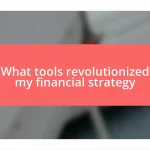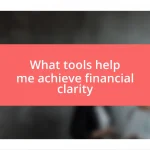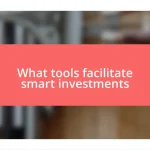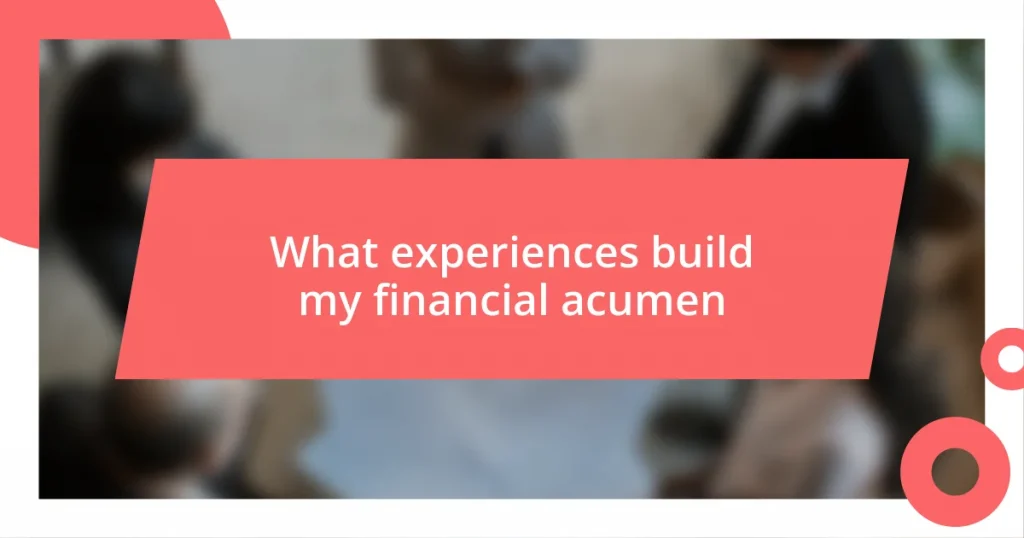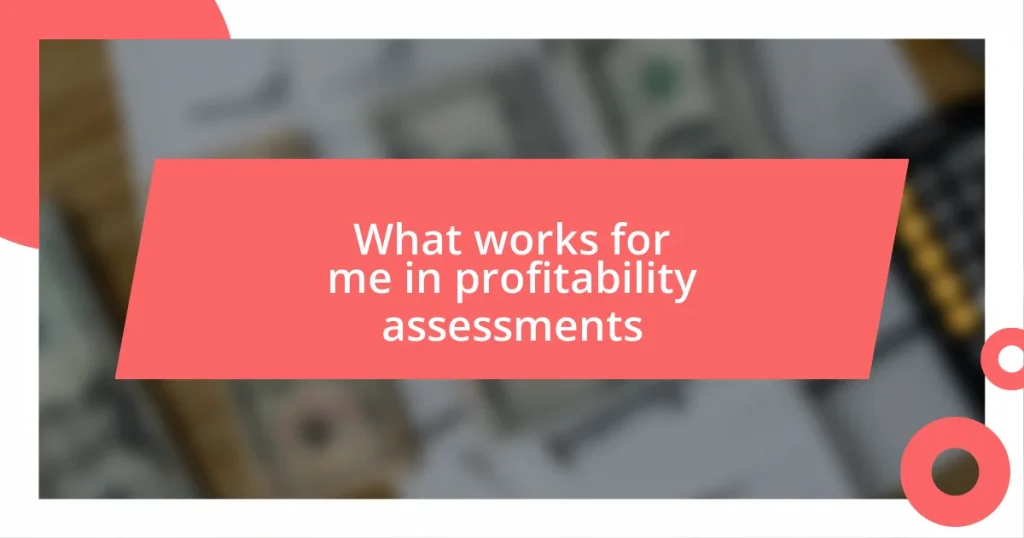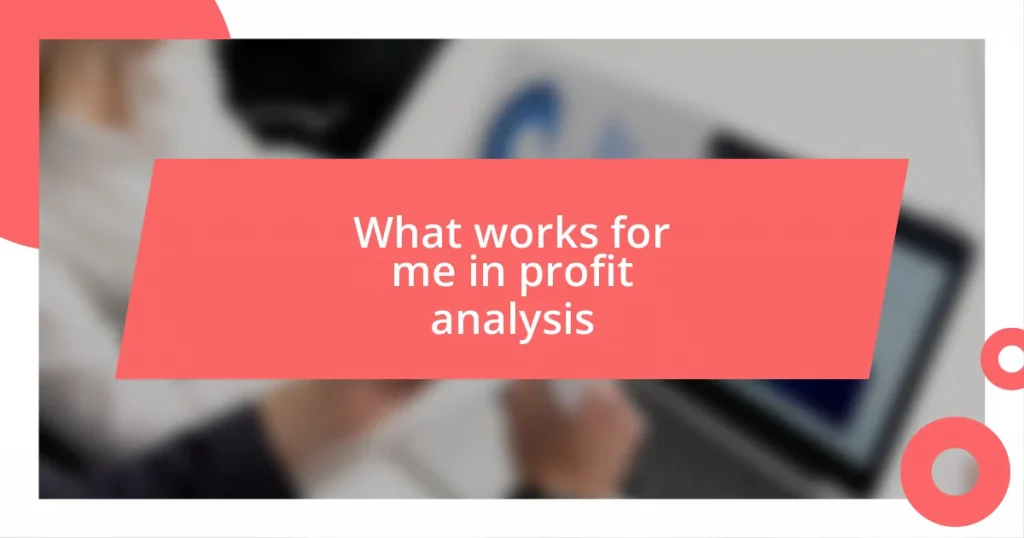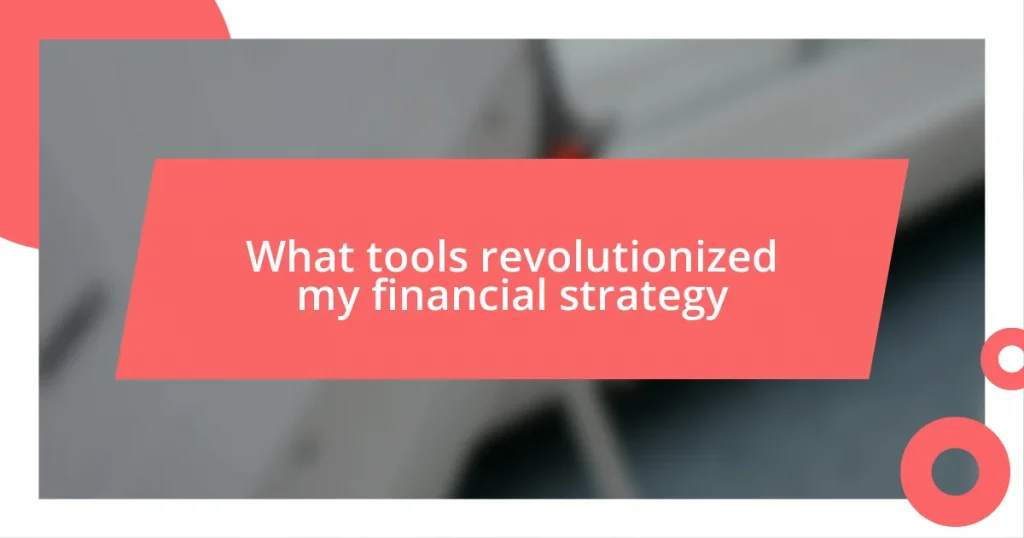Key takeaways:
- Financial acumen is developed through real-world experiences, continual learning, and an understanding of basic financial principles such as budgeting and investing.
- Practical experiences, like internships and managing personal expenses, play a crucial role in shaping financial knowledge and confidence.
- Networking with professionals and sharing insights from diverse financial philosophies can broaden one’s perspective and enhance decision-making abilities.
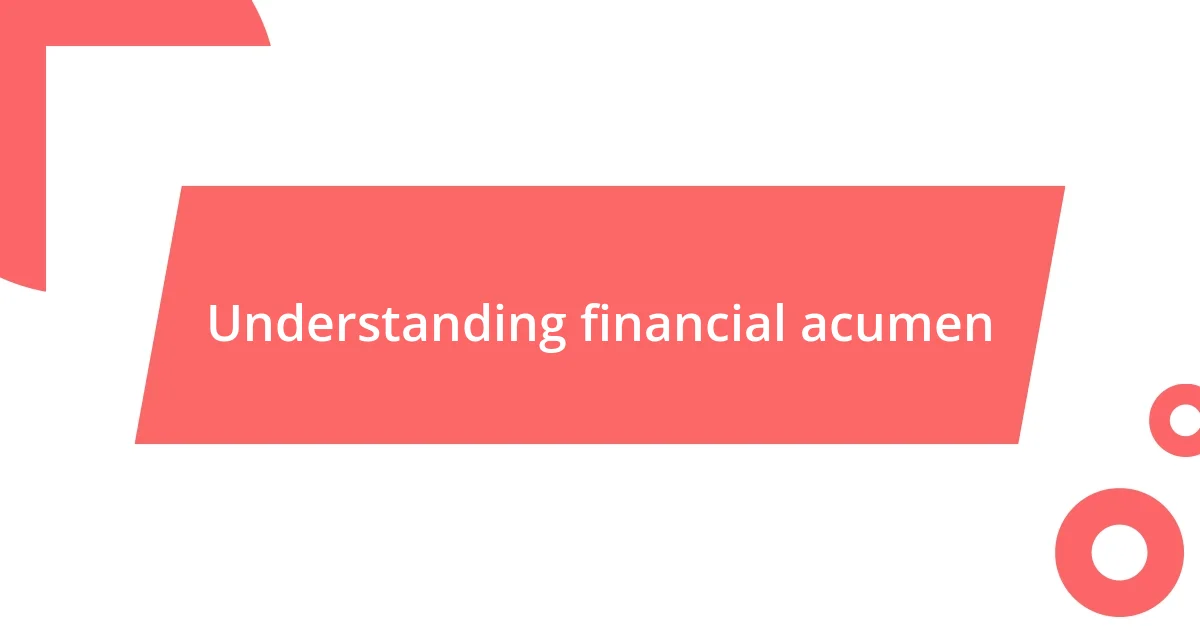
Understanding financial acumen
Financial acumen is essentially the ability to understand and manage financial matters effectively. It’s about more than just crunching numbers; it’s about making informed decisions that can greatly impact your life. I remember when I first grasped financial concepts through my own experiences, it was like a light bulb going off. Have you ever felt trapped in financial jargon? That sense of confusion can be overwhelming, yet the journey toward clarity is so rewarding.
To truly build financial acumen, understanding the underlying principles is key. For instance, grasping how investments work entails knowing concepts like risk versus return. I vividly recall a time when I hesitated to invest in stocks because of the fear of losing money. It took me a few missteps and a leap of faith to appreciate that losses can be part of the learning curve and a pathway to future gains. Have you ever hesitated to take a financial risk? Sometimes, those moments teach us more than years of theoretical understanding.
An important aspect of financial acumen is developing a mindset that welcomes continual learning. Just like I regularly check in with my budget, I also seek out new financial knowledge—books, podcasts, even conversations with financially savvy friends. Isn’t it amazing how simple discussions can replace anxiety with knowledge? In my experience, this proactive approach to learning has been invaluable as I navigate my financial landscape, paving the way for smarter decisions and greater confidence.
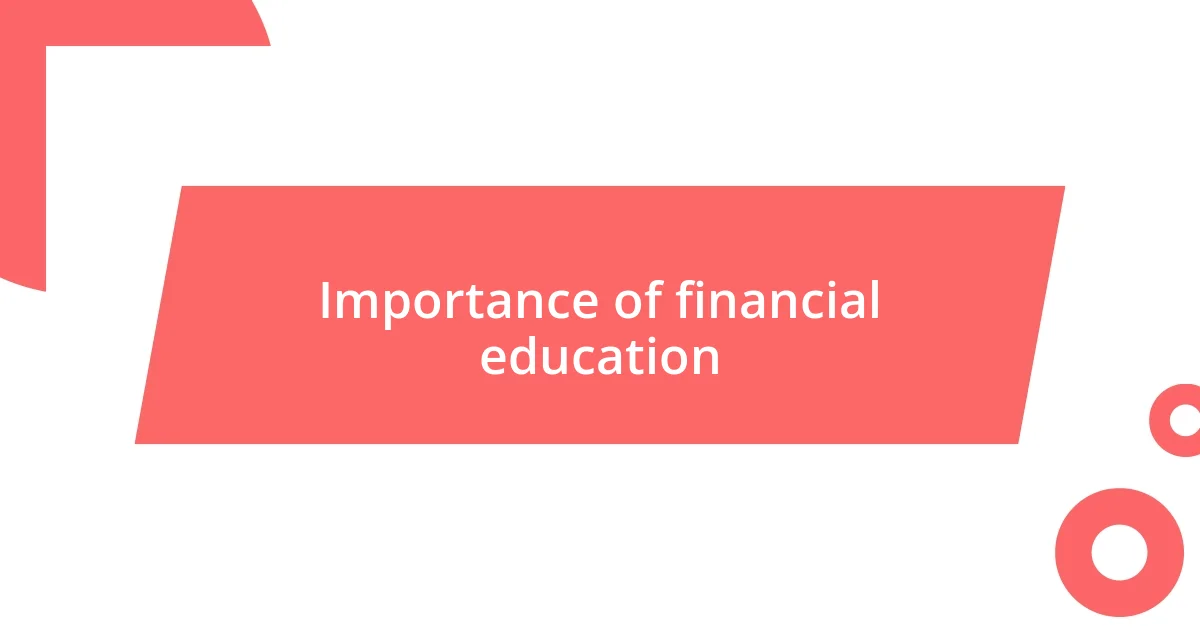
Importance of financial education
Education in finance is crucial for anyone looking to make informed decisions about their money. I recall a time when I missed out on a great investment opportunity simply because I didn’t understand basic financial principles. It was frustrating, but that experience fueled my desire to learn more about budgeting, investing, and saving. Now, I can confidently compare financial options and make choices that align with my goals.
Building a strong foundation in financial education leads to long-term resilience. When I encountered unexpected expenses last year, I was grateful for the savings cushion I had created. This financial foresight didn’t come naturally; it was a product of diligent learning. A solid grasp of financial concepts can help anyone weather life’s surprises without feeling overwhelmed.
Moreover, financial education empowers you to set and achieve personal financial goals. I remember when I first started budgeting—I felt a sense of pride every time I reviewed my progress. With each financial milestone I reached, from saving for a vacation to paying off debt, my confidence grew. Isn’t it empowering to know that you have control over your financial future?
| Aspect | Impact |
|---|---|
| Understanding Basics | Enhances decision-making |
| Long-term Planning | Builds financial resilience |
| Goal Setting | Increases motivation and control |
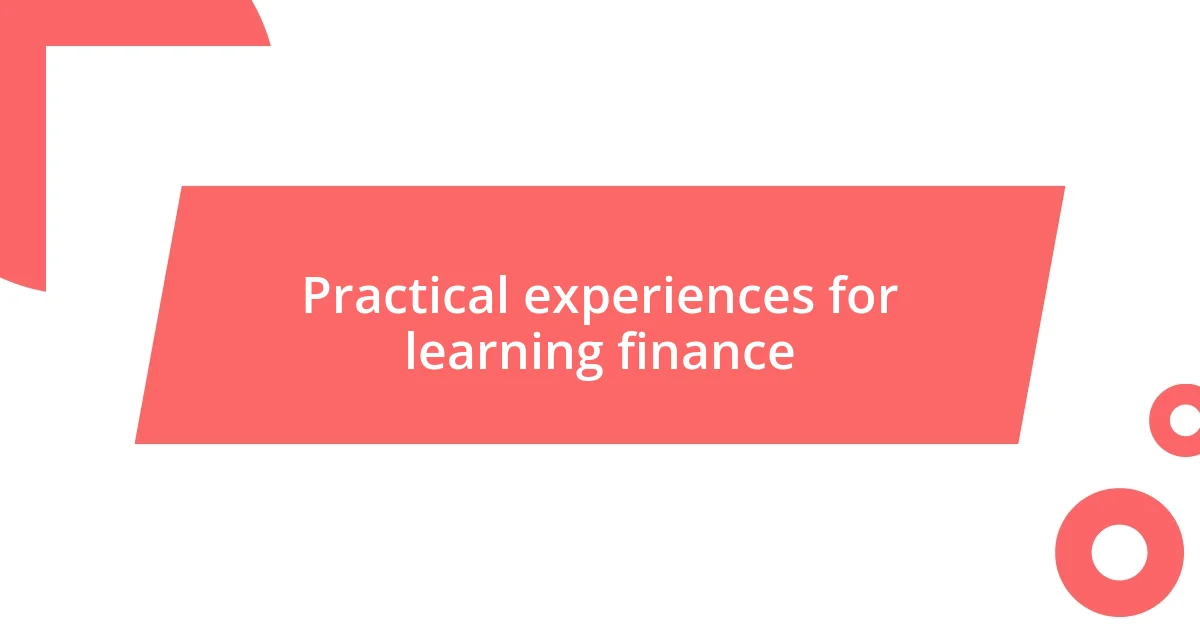
Practical experiences for learning finance
Experiencing finance in real-world scenarios can profoundly shape our understanding. I recall my first job, where I meticulously tracked my income and expenses. That hands-on experience taught me the true value of a budget and how small choices can snowball into significant financial impacts over time. It was a bit of trial and error, but seeing numbers in a spreadsheet come to life in my bank account was a revelation.
Here are some practical experiences that can cultivate your financial acumen:
- Internships with finance-related companies: Observing experts managing assets and making investment decisions is invaluable.
- Job shadowing a financial advisor: Learning directly from someone who helps clients navigate their finances can provide insights that textbooks simply can’t offer.
- Managing personal expenses: Keeping an accurate daily log fosters a deeper understanding of spending habits.
- Engaging in discussions about money: Talking with friends or mentors about their financial journeys can expose you to various strategies and viewpoints.
- Simulating investing: Using stock market simulation apps lets you experiment with investing without the risk of losing real money.
- Volunteering for financial literacy programs: Teaching others reinforces your own knowledge and highlights the importance of sound financial practices.
These experiences serve not just as learning opportunities but also as formative moments that can shape your financial mindset. Each encounter has the potential to unlock deeper layers of understanding and ultimately, confidence in managing your financial future.
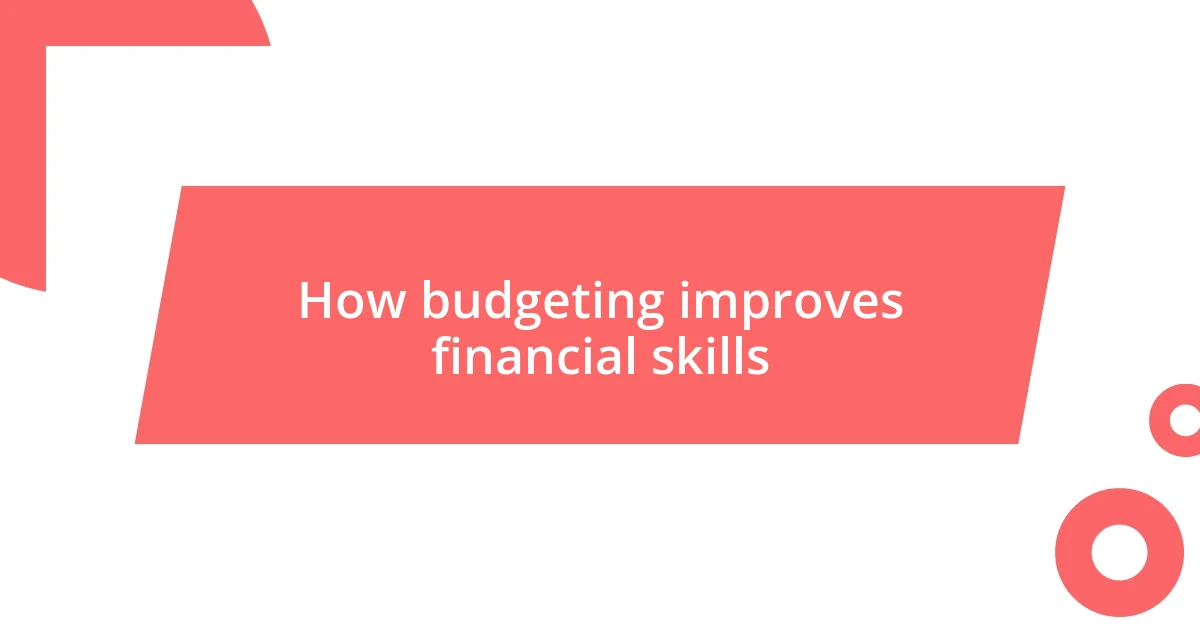
How budgeting improves financial skills
Budgeting is more than just tracking income and expenses; it’s a tool that sharpens financial skills. When I first started budgeting, the act of categorizing my spending forced me to confront my habits, both good and bad. Have you ever stared at a spreadsheet and realized how much you were spending on coffee? That moment of clarity was eye-opening for me, revealing areas where I could cut back and redirect funds toward meaningful goals.
Each month of sticking to a budget felt like a personal challenge. I remember creating a monthly spending plan and then diligently monitoring my progress. The satisfaction of seeing my savings grow was a rush, but more than that, it taught me discipline and foresight. By setting limits, I learned to prioritize needs over wants, something I still carry into my financial decisions today. Isn’t it incredible how those small changes can lead to big transformations in how we manage money?
Over time, budgeting also enhanced my ability to anticipate future expenses. I got into the habit of setting aside money for irregular costs, like car maintenance or birthday gifts, instead of relying on sudden windfalls. This proactive approach not only reduces anxiety but also instills a sense of control over my financial journey. Doesn’t it feel great to tackle expenses with confidence, knowing you have a plan in place?
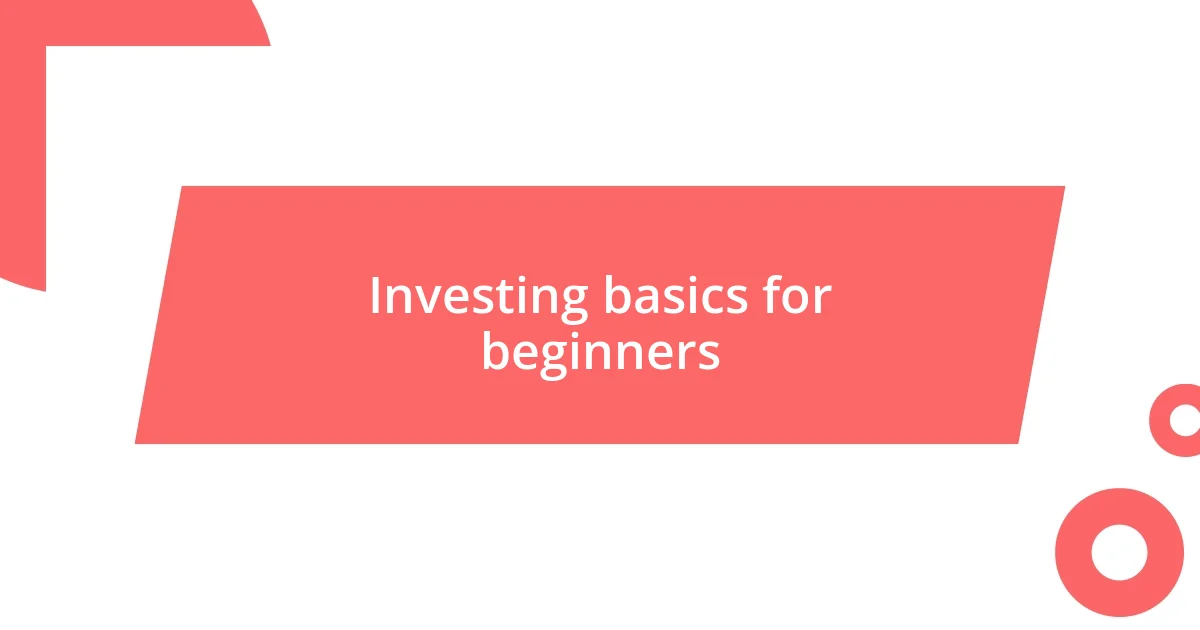
Investing basics for beginners
Investing can feel overwhelming at first, but starting with the basics is essential. I remember my initial venture into the stock market; it was like stepping into a new world filled with jargon and numbers. Knowing terms like stocks—pieces of ownership in a company—was crucial for my understanding. Have you ever felt hesitant about jumping into something new because you didn’t understand the language? That first hurdle is often the hardest, yet it’s so rewarding when you start to decode it.
Once I grasped the fundamental concepts, I dipped my toes into different investment types. I focused on exchange-traded funds (ETFs) and mutual funds because they allowed me to invest in a variety of assets with less risk compared to picking individual stocks. Seeing my money work for me, even in small increments, was unbelievably exciting. It’s like watching a seed grow into a plant; each positive change reinforced my belief in investing as a powerful tool for financial independence.
As I navigated the investing landscape, I learned about the importance of setting goals. Asking myself what I wanted to achieve—whether it was saving for a big trip or building a safety net—helped me craft a personalized investment strategy. I still recall the rush of hope as I mapped out what my future could look like with smart investments. Can you remember a time when you made a financial decision that genuinely excited you? Realizing the power of compound interest and reinvesting my earnings was transformative, making it clear to me that investing is an essential part of building wealth over time.
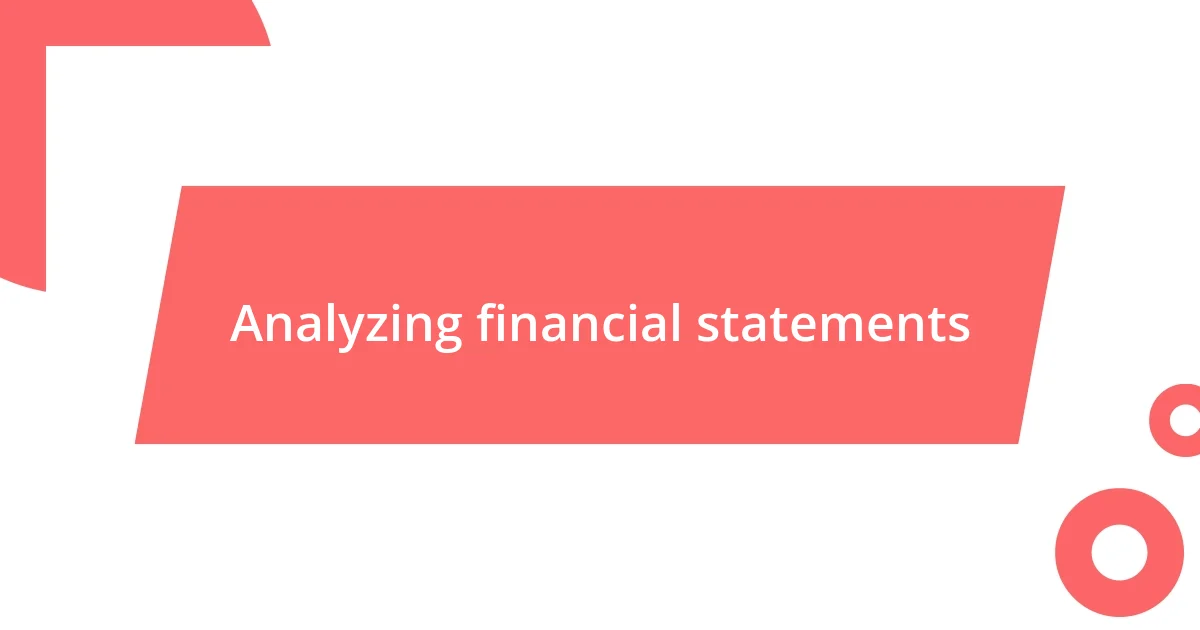
Analyzing financial statements
Analyzing financial statements was a game changer for my understanding of business health. I vividly remember opening a company’s balance sheet for the first time, feeling a mix of curiosity and confusion. It was fascinating to see how assets, liabilities, and equity were interconnected. Have you ever looked at a document and thought, “What does this really tell me?” That realization that financial statements could tell the story of a company’s performance sparked my enthusiasm to dive deeper.
As I dug into income statements, I began to connect revenue and expenses, realizing how vital each component was to profitability. I still recall sitting down with a friend who was an accountant, going through the statement line by line. The lightbulb moment came when I grasped how understanding these numbers could guide my investment decisions. It made me wonder: had I been making choices based on incomplete information all along? Knowing how to spot trends and anomalies in financial data sharpened my acumen significantly.
The cash flow statement was another piece that captivated me; it revealed the lifeblood of a business. An experience that stands out was when I analyzed a startup’s statement and noticed alarming cash outflows. Though it was tough to see their financial struggles, it underscored the importance of cash management in sustaining operations. Have you ever witnessed a friend struggling financially and wished you could show them how to look at their cash flow? My experience taught me that mastering financial statements isn’t just an academic skill; it’s a practical tool for making informed decisions that affect real lives.
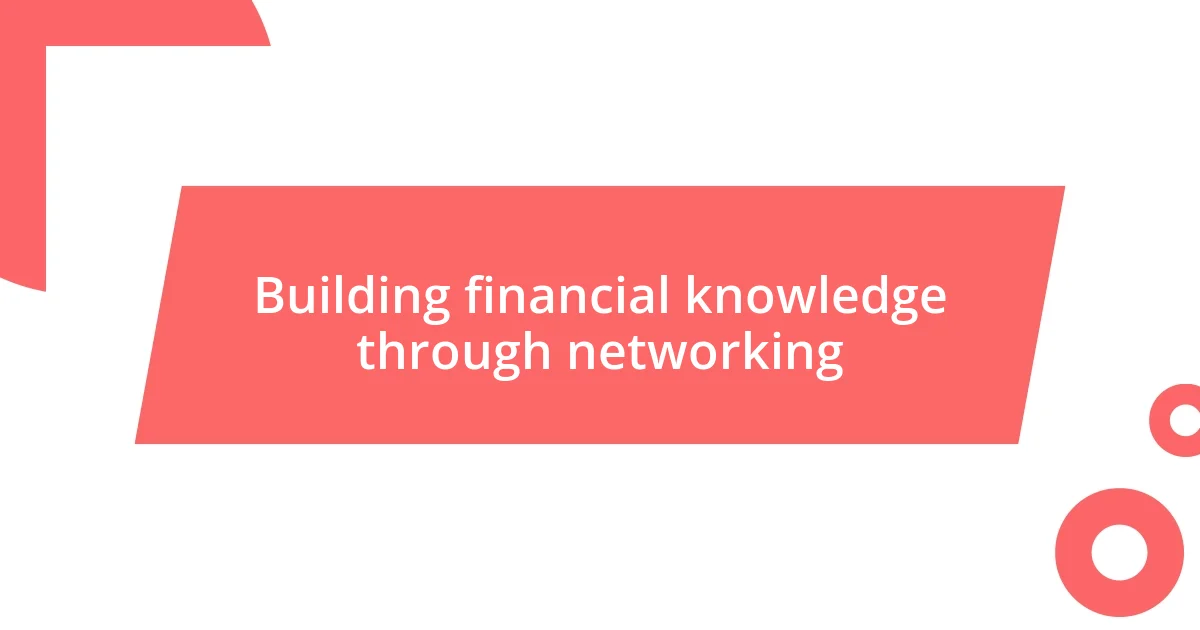
Building financial knowledge through networking
I still remember my first networking event—it was both exciting and nerve-wracking. I was surrounded by people who seemed to speak a different language when it came to finance. However, taking the plunge to engage in conversations opened my eyes to a wealth of knowledge and perspectives. Have you ever walked away from a chat and felt a spark of inspiration? Those moments motivated me to seek out mentors who were willing to share their experiences and strategies, transforming my financial mindset bit by bit.
As I interacted with more professionals, I discovered the power of sharing industry insights. I recall a coffee chat with a seasoned investor who shared their missteps and the lessons learned along the way. Hearing about their journey made me reconsider my own approach to investing. Have you thought about how much you could learn from someone who has made mistakes? Recognizing that financial expertise often comes from real-world experience pushed me to be more open to seeking advice from my network.
What struck me most was the incredible diversity of financial philosophies I encountered. Discussions ranged from conservative saving strategies to aggressive investment plays, each rooted in personal stories. It made me realize that there isn’t a one-size-fits-all approach to building financial acumen. It’s about piecing together insights from different people, much like assembling a puzzle. The rich tapestry of stories and perspectives I gathered helped me form a more well-rounded understanding of managing my finances. How do you think your unique experiences could contribute to someone else’s financial journey?


